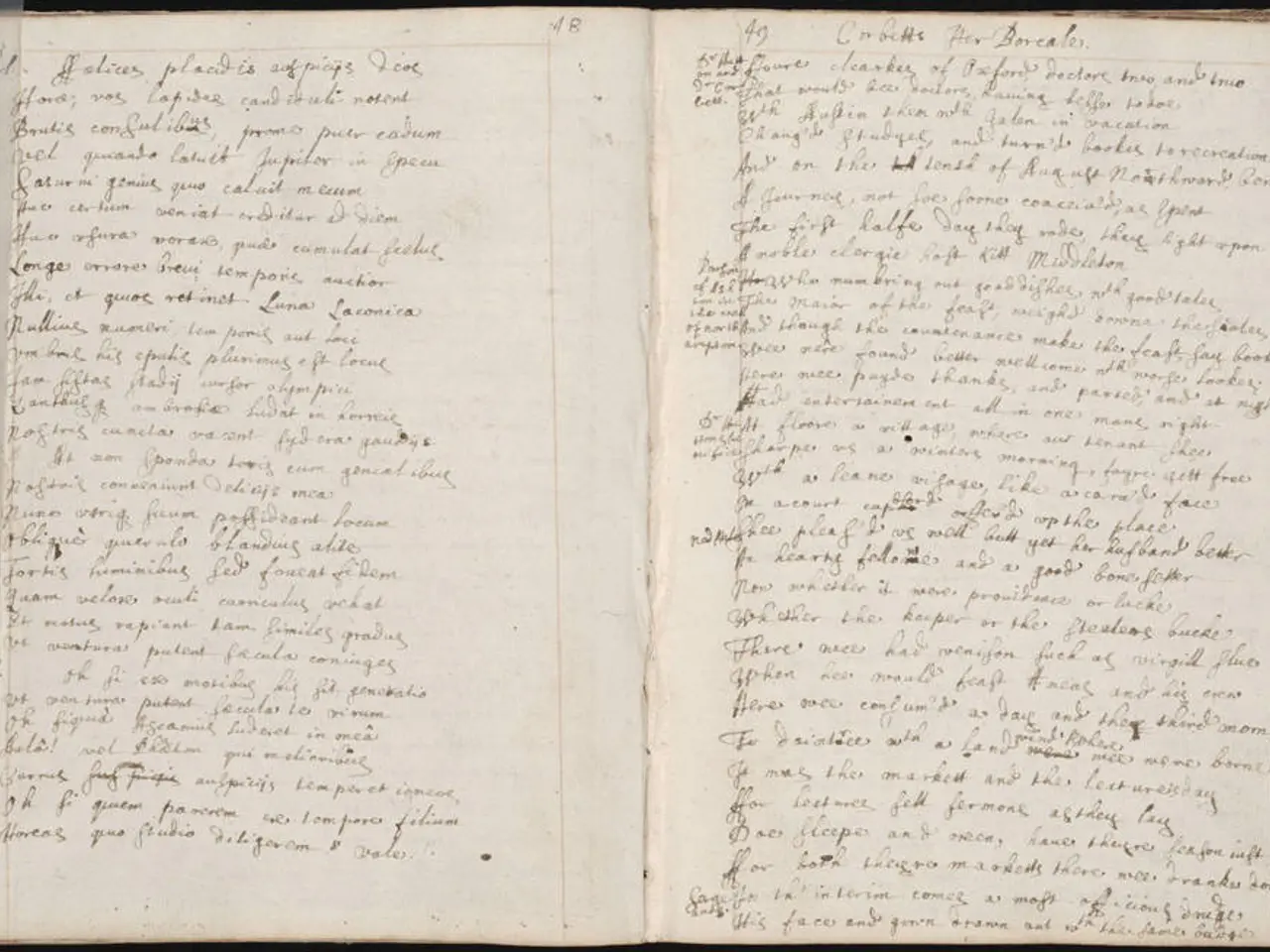Entering the realms of your interwoven universe
In the world of crossword puzzles, a significant shift towards social and linguistic inclusivity has been underway. This transformation is driven by puzzle constructors like Anna Shechtman, who are striving to broaden representation, embrace diverse language, and cultural references, and create puzzles that mirror contemporary society more accurately.
Anna Shechtman, a prominent figure in this movement, has made a name for herself by advocating for crossword clues and answers that move beyond traditional, often narrow, cultural references. Her work focuses on making crosswords more inclusive, diverse, and modern [2].
She first took a step towards this goal when she worked with Will Shortz, visiting his home office in Westchester, New York. Over several sessions, she rewrote up to 95% of the words in every crossword puzzle, aiming to make them more representative and reflective of the diverse world we live in.
Her efforts have not gone unnoticed. Editors at The New Yorker, for instance, make a conscious effort to diversify the words in their crossword puzzles, expanding frames of reference and promoting linguistic diversity.
However, challenges have arisen along the way. Shortz, at one point, expressed reluctance to include words that he deemed "niche," which included words from queer culture, Black culture, women's culture, and proper names like Laverne Cox and Gucci Mane.
Despite these hurdles, Shechtman has persisted, introducing words like "vine-ripe," "gay anthem," and "male gaze" into crossword puzzles. Although she lost the battle to include "male gaze" with Will Shortz, her contributions have undoubtedly shaped the landscape of crossword puzzles.
Shechtman's journey began when she was 15, after watching the documentary film "Wordplay." It was then that she first learned about the human beings behind crossword puzzles. Her passion for the puzzles led her to publish her first crossword in The New York Times at age 19, and she now creates crosswords regularly for The New Yorker.
Crossword puzzles, Shechtman believes, have the power to form a more common knowledge and create a sense of shared language. They can also serve as historical documents, providing insight into political upheavals and events.
In a bid to make crosswords even more inclusive, a group of women, including Shechtman, wrote a letter to The New York Times asking for changes to make crossword puzzles more diverse. They requested having more women and people of colour represented on the puzzles and games editorial section, and allowing constructors to see their proofs before they are published.
Shechtman's memoir, "The Riddles of the Sphinx: Inheriting the Feminist History of the Crossword Puzzle," chronicles her journey and the evolution of crossword puzzles towards inclusivity. Her work continues to shape the future of crosswords, making them more equitable and linguistically varied, reflecting the richness and diversity of our world.
- Anna Shechtman, in the realm of crossword puzzles, champions culture, history, and linguistic diversity to broaden representation and create puzzles aligning with contemporary society.
- Shechtman collaborated with Will Shortz, rewriting up to 95% of crossword puzzle words, striving for a more inclusive, diverse, and modern puzzle experience.
- Editors at The New Yorker make conscious efforts to diversify their crossword puzzles, expanding frames of reference and fostering linguistic diversity.
- Challenges have persisted, such as resistance to include "niche" words from queer culture, Black culture, women's culture, and pop culture figures like Laverne Cox and Gucci Mane.
- Undeterred, Shechtman expanded crossword vocabulary with words like "vine-ripe," "gay anthem," and "male gaze."
- Despite not including "male gaze" in her discussions with Will Shortz, Shechtman's contributions have shaped the landscape of crossword puzzles.
- Crossword puzzles, according to Shechtman, serve as potential avenues for building common knowledge and a shared language.
- Crosswords can also provide historical insights into political upheavals and events, offering a glimpse into the past.
- A group of women, including Shechtman, wrote a letter to The New York Times advocating for changes to make crosswords more diverse, such as increasing representation and allowing constructors to review their proofs.
- Shechtman's memoir, "The Riddles of the Sphinx: Inheriting the Feminist History of the Crossword Puzzle," chronicles her journey and the evolution of crossword puzzles towards inclusivity.
- Shechtman's work in crossword puzzles is reshaping the field, pushing it towards a more equitable landscape with increased linguistic diversity.
- Finance, business, careenvs, and careers might, at first, seem unrelated to crossword puzzles, but diversifying their lexicon can reflect the realities of the modern world.
- Diversity and inclusion in crossword puzzles mirror the push for diversity and inclusion in many other aspects of life, such as fashion, beauty, and the entertainment industry.
- Technology's role in this transformation is evident in social media's influence on public discourse and language, shaping policy-and-legislation, politics, and even war-and-conflicts.
- Social media's impact on politics and policy has led to increased awareness of social issues like crime-and-justice and responsible gambling, with the rise of sports betting gaining more attention.
- The ever-evolving casino-and-gambling landscape, from Las Vegas and casino-games to lotteries and gaming trends, involves business, entertainment, celebrities, and policy-and-legislation, mirroring the broader shift towards inclusivity and diversity.







